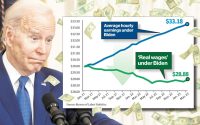Altria agrees to pay $235M to settle Juul-related cases
Altria Group said Wednesday that it will pay $235 million to settle at least 6,000 lawsuits accusing it of fueling a teen vaping epidemic through its former investment in e-cigarette maker Juul Labs.
The deal ends nearly all of the litigation brought against the maker of Marlboro cigarettes over Juul by local government bodies and individuals across the US.
It came shortly after San Francisco’s public school district finished presenting its case against the company in a jury trial, which will now be cut short.
Sarah London, one of the lead attorneys for plaintiffs in the litigation, in a statement said the deal would “provide extraordinary and truly meaningful relief for youth, parents, and governmental organizations nationwide.”
Altria expects to record a pre-tax charge of $235 million in the second quarter of 2023 and intends to exclude it from adjusted earnings per share.
“While we continue to believe the claims against us are meritless, we believe this settlement avoids the uncertainty and expense of a protracted legal process and is in the best interest of our shareholders,” said Murray Garnick, Altria’s executive vice president and general counsel.


The company in March announced that it had given up its 35% stake in Juul in exchange for licenses to some of Juul’s intellectual property.
As of December, its share of Juul was valued at $250 million, down from $12.8 billion in 2018.
Plaintiffs in the lawsuits claimed that Juul marketed to teenagers with sweet flavors and flashy social media campaigns.
They said Altria helped the strategy by letting Juul use its sales force and place its products next to Altria’s on shelves.
Juul previously settled most of the cases against it, paying more than $1 billion to 48 states and territories and $1.7 billion to individuals and local government entities.


